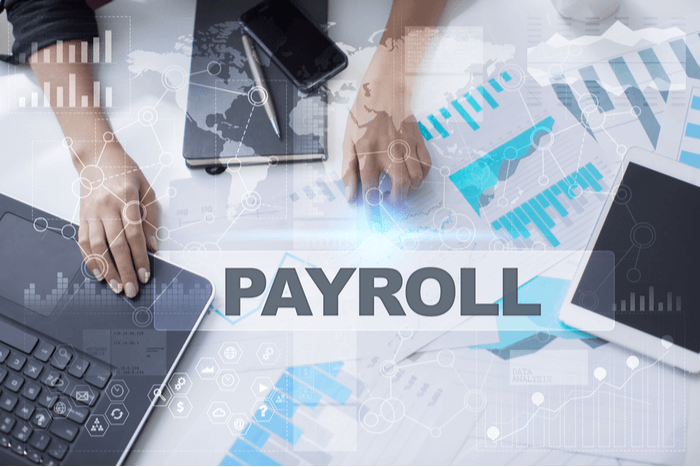There are so many different types of tax that you have to consider when you’re living and traveling all around the world.
In fact, we all deal with these nine different types of tax on a frequent basis. And if you’re only preparing and planning how to reduce your income tax, you might just end up overpaying on these other taxes and leaving plenty of money on the table.
Even if you aren’t planning on going offshore, you will still have to deal with many of these types of tax. Finding a way to legally reduce your taxes from these nine sources will help you protect and grow your wealth.
In this article, we’ll cover:
- Income Taxes
- Income Levies
- Payroll Taxes
- Wealth Taxes
- Sales Taxes
- User Fees
- Sin Taxes
- Property Taxes
- And Stamp Duties
Chances are, you may not even be aware of how you’re paying some of these.
1 – Income Taxes
The first, and most obvious of the nine types of tax is income tax. Especially if you’re in the United States, there are numerous kinds of income taxes. They start at the federal level, but also exist on the state and even city level in many Eastern parts of the country.
At the end of the day, US citizens are paying a lot of income tax to a lot of different people.
Depending on the system that your home country uses for income tax, finding ways to reduce this type of tax will become central to your overall strategy. Because the US uses a citizenship-based tax system, many of our clients choose to renounce their citizenship.
Our clients from the UK, Australia, and even Canada, on the other hand, come from a residential tax system, which allows them to forgo paying income tax as long as they don’t meet certain requirements. While these requirements are getting more extensive, more of these clients choose to keep their citizenship.
Understanding what system the country you plan to live in uses will help you reduce your income tax.
2 – Income Levies
Income levies are fairly rare, but this type of tax does happen from time to time.
I remember being in Ireland around a decade ago when they rolled out their levy. The country had gone broke and used the levy as a temporary measure to bring in more cash. It came out to be somewhere between 1-3% depending on how much you were earning.
Despite being rare, other countries are not immune to creating income levies. Occasionally, other countries will introduce them as a way to grab more of your cash.
When considering how you want to build out your tax reduction strategy, it’s important to pay attention to what countries have these levies or have used them in the past.
3 – Payroll Taxes

Many people actually pay more in payroll tax than income tax.
We made a video about how most people in the United States, for example, actually pay more in payroll taxes than they pay in income tax.
While that’s not true for six- and seven-figure entrepreneurs, there’s still quite a lot of money that goes into things like Social Security tax and Medicare tax. In other countries, there are all sorts of taxes for your healthcare, universal service charges, and everything that allegedly goes to provide for your retirement or your old age medical care.
And that means your money is going to pay for medical care which, depending on where you live, might be a terrible deal for you.
4 – Wealth Tax
If you’re from the United States, you probably aren’t too familiar with the wealth tax, but I think that we will see more of these in the coming years.
Under a wealth tax, the value of all of your assets is added up every year and you pay taxes on it. That tax could be half a percent and maybe a full one percent in other cases.
Spain, Portugal, and France are some of the countries that use a wealth tax. The idea behind the tax being that even if you aren’t working for your money, the government deserves a piece of it.
5 – Sales Tax

Sales tax is known by many different names around the world. VAT, or the Value Added Tax, is one of the most common.
I’m convinced that sales tax is why a lot of the emerging countries that we talk about as great places to live are more than happy to set relatively easy terms for wealthy foreigners looking for a place to live.
Whether it’s called the VAT, the GST, the SST, or the consumption tax, we are all paying a fortune in sales taxes. When I’m living in Malaysia, for example, I’m certain that I’m paying more in their GST than the average person does in income tax every year.
That money adds up.
Especially when you consider that many of the products you may be buying in a certain country already have a huge foreign import duty on them. Things like luxury goods will have a 100% or 200% tax in many places in the world. Cars can be taxed the same way.
Because all these different kinds of sales tax could mean you end up paying a lot of extra money every year, it’s important to do your shopping in places that charge lower taxes.
Interestingly enough, sales taxes are often the highest in the EU where countries have VAT rates that go up into the mid 20’s in some cases.
I personally love living in countries with territorial taxes, but if you’re going to be doing a lot of extensive shopping you may be better off just buying everything in Europe and getting a tax rebate if you can. Particularly if you’re luxury shopping.
Oddly enough, this works because, by the time a lot of these products have made it to Malaysia, Singapore, Panama, and even Hong Kong, they’re actually marked up much higher than if you just went and bought them in Germany.
A little bit of research and work can help you save a good amount of money in sales tax.
6 – User Fees
User fees come up in situations like when you have to pay a toll to drive down a road.
Florida is a good example of this. Growing up, we always talked about how Florida has no income tax, but you couldn’t drive anywhere without paying a toll. Cutting down on the tolls if you drive and other user fees if you use certain services is going to play a big role in reducing your taxes.
If you’re living in a country that has a friendly tax regime, take special care to look for where and when you’re paying user fees. You might be saving on one hand while paying much more on the other.
7 – Sin Taxes

Whether you’re looking to buy a beer or smoke a cigarette, sin taxes can add an extra cost to the final bill.
You’ll see a similar principle play out with sin taxes. Do you smoke? Do you drink alcohol? If you do, you should be aware that you will pay much more (or less) for those things depending on where you choose to live. If you’re in a Muslim country like Malaysia, for example, alcohol is going to cost more.
Every time I’ve hosted people to come down from Thailand or some other place to Malaysia, they complain about how expensive it is to get drunk. They want to get cheap hooch, but can’t find it anywhere.
This is because the government has established a sin tax to discourage people from consuming alcohol.
It’s why I tell people that if you’re coming to Southeast Asia, there’s no point in drinking wine. Wine should be left for Europe. Drink a beer or a cocktail when you come to Southeast Asia because, by the time wine has gone through all the duties and sin taxes, what you’re getting isn’t worth what you’re paying.
The other type of tax like this is applied to cigarettes. This is why I love countries like Georgia, Armenia, Serbia, and Montenegro: cigarettes are cheap.
I don’t smoke, but, quite frankly, it’s not my business to tell you not to if you want to.
When I see that Australia is going to raise their cigarette tax prices to something like 45 Aussie dollars by 2020, it’s easy to figure out that Australia is a terrible place for anyone who likes to smoke.
You could potentially save literally thousands each year by going to a place where smoking is still considered acceptable. While even Georgia raised its cigarette tax, that raise brings the price of a pack from $1.00 to $1.50.
You could potentially see big savings by finding a place that is okay with you engaging in what other countries consider a sin and, subsequently, justify its taxation.
8 – Property Tax
If you’re going to live in another country and you want to buy instead of rent, you need to know what the property tax is on an ongoing basis.
Countries like Dominica, Dubai, and Georgia are examples of countries that don’t have property taxes (or at least don’t have them for expats).
You might get into a country that has very low income taxes, but end up with very high property taxes. It’s a problem I know that really hits people in places like New York and Connecticut. People living in those states could save a fortune if they moved somewhere where property taxes weren’t through the roof.
Even staying in the high income tax US and just moving to another state like Arizona could save them all kinds of money in property tax.
But, when you’re coming from building an overseas strategy, finding a country that has a low enough or zero property tax or zero is a good idea. Countries like Malta, the Cook Islands, or the Dominica are examples of these.
Just making sure that you’re taking property tax into account before you sign up for other kinds of lower taxation here or there can go a long way to help you out.
9 – Stamp Duty

In many places, you must pay a certain amount to have various documents stamped. For example, in the case of real estate transactions.
The other tax related to property tax is stamp duty.
When you’re going through the process of buying property, some countries are going to charge you to transfer it. Then, when you’re selling it, they’re going to charge you again to transfer away.
When I bought a house in Georgia, for example, I paid no stamp duty. I paid about $19 in transfer fees and the deal was done.
When I buy a house in Malaysia, there’s a sliding scale from 1% to 2% to 3% that I’ll be paying as a stamp duty for the privilege of having that transaction stamped.
Even if you’re just renting in some countries, the government wants you to have your rental agreement stamped. They might charge you 10% of the value of the whole year’s rental agreement just to get a stamp.
And if you don’t have that stamp, you can’t sue the landlord. You can’t go to court. You can’t get any of the benefits of being a tenant.
You have to get that stamp.
Understanding what the stamp fees are on your real estate transactions, and potentially any other transactions, is very important.
That stamp fee can even extend to what it costs to leave the country at the airport. There might be a departure tax or a tax to get yourself stamped on the way out. Some countries, like Colombia, will do this.
Some countries in Central American as well as the Philippines will have visitors pay an exit tax before they leave.
Conclusion
There are a lot of different types of taxes that we have to deal with on an everyday basis.If you’re that six- or seven-figure entrepreneur, the reality is that the actual rate you’re paying for all of these taxes over the course of your lifetime is much higher than the 40% or 45% percent you might think.
If you can buy a property in a place with no property tax, can you also sell that property without paying a stamp duty?
Can you find a place that respects your personal lifestyle and also has low income taxes?
These are the kind of things that you’ll want to consider when building out your tax strategy alongside any consideration you may put into finding places where it’s easier and cheaper to shop and buy products.
If you’re planning on living overseas, or even staying at home, make sure you take all of these taxes into account.
Andrew Henderson
Latest posts by Andrew Henderson (see all)
| Leave a Rating |
Source: https://nomadcapitalist.com/2019/09/23/types-of-tax-to-avoid/
